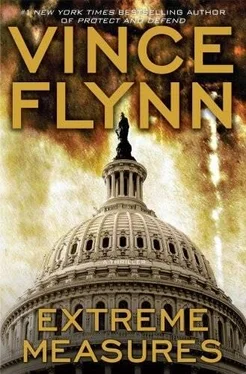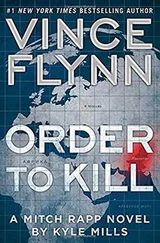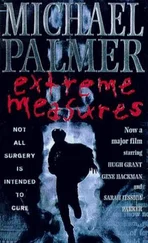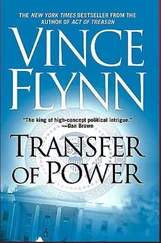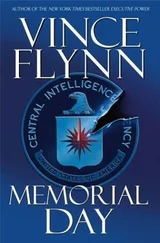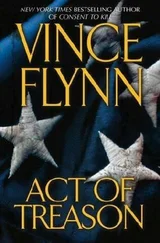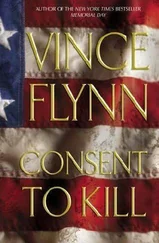He pulled the keys out of the ignition and got out. After shutting the garage door, he walked up to the house. The light over the kitchen sink was on, as was a lamp in the study. Otherwise, the house was completely black. Nash slid his key into the back door and entered the mudroom. He turned off the alarm, closed and locked the door, and turned the alarm back on. He put his gun and holster in the gun safe and made a mental note to fill the magazines for the.40-cal in the morning.
Nash took off his suit coat and set it on the back of a chair in the kitchen. He quietly walked down the hallway and looked in the study. Maggie was sitting in the big chair next to the fireplace with a blanket and a book on her lap. She must have sensed his presence, as her eyes fluttered open, and she looked up at him with a warm smile that vanished almost as quickly as it had appeared. Her eyes traveled from her husband’s face to his shirt.
Nash had forgotten that his shirt was stained with blood.
“What happened?” Maggie asked with concern.
Nash didn’t know how much he could say, and he really didn’t want to relive what had happened. “I’m fine, honey. This isn’t mine.”
“When you called, you said you were fine,” she said as she tossed the book and blanket off her lap. “You never said you’d been in danger.”
“I wasn’t, honey. This is from helping with the wounded.”
“That building in McLean… the one that they showed on TV with all the emergency vehicles racing in and out – is that where you were?”
Nash was hit suddenly by the bizarre requirements of his job. His own wife didn’t even know exactly where he worked. She knew only that he had an office at CIA headquarters. She knew nothing about his role at the National Counterterrorism Center. She probably didn’t even know the organization existed.
“I was there,” he admitted, “but I can’t tell you much more than that.”
She wrapped her arms around him and gave him a tight squeeze. “The kids were really worried.”
“I know. I wish I could have gotten home sooner but…” Nash’s voice trailed off.
“You can’t talk about it,” she finished for him.
It was the company line. It represented the strange nonbalance of their marriage. She talked about her job whenever she wanted and as often as she wanted. He didn’t speak of his even at times like this, when it would have made his life a lot easier. “How did things go with the dean and the De Graffs after I left?”
Maggie took a half step back and looked up at her husband with a proud smile. “Let’s just say Dean Barnum Smith and I got the De Graffs to drop the entire matter.”
“Really?”
“Yes, and Rory and I sat down and had a good talk this afternoon. I asked him if he was happy at Sidwell.”
“And?”
“His answer was less than enthusiastic. So, I told him, if he stayed out of trouble for the rest of the semester, I’d let him go to Georgetown Prep next year.”
“What about lacrosse camp this summer?”
“I told him that was between you and him.”
Nash drew her in close and kissed the top of her head. Knowing how stubborn she was, Nash knew it couldn’t have been easy for her. “Thank you, honey.” He squeezed her tight and rubbed her back.
She tilted her head back and offered him her lips. “You were right. I allowed myself to get too caught up in all of it.”
“I’m not exactly the easiest person to deal with,” Nash said as he stepped away and looked down at his dirty shirt. “You put up with a lot of shit, honey.”
“Yes, I do.”
“I’m sorry,” Nash said in a tired but sincere voice.
“Don’t be,” she said as she pushed him toward the stairs. “Go upstairs and take a shower. I’ll be up in a minute.”
Nash started walking up the stairs.
“Michael,” his wife said softly, “I know you can’t talk about it, but I’m sorry about what happened today.” Maggie placed her hand on the railing. “I’m sure you knew some of those people who were killed.”
With a blank stare Nash looked past his wife into the near dead embers in the study’s fireplace. He didn’t have it in him right now to tell her that Jessica was dead. For some reason he couldn’t picture any of the faces of those who had died. In a detached voice, Nash said, “It wasn’t a good day for us.”
She rubbed his hand. “I’m sorry, honey.”
Nash looked down at her beautiful, perfect face and gave her a reassuring smile. “I’m fine.”
He climbed the stairs and was about to check on each of the kids, when he decided he’d better shower first. They did not need to see their father in the dead of night in a bloody shirt. Nash peeled off his clothes and stepped into the shower. As the hot water cascaded down his shoulders, he took a deep breath, and as the tension began to release, the faces came to him. Chris Johnson was first. He imagined what his final hours must have been like, and shuddered to think of the pain they’d put him through. Then the images of the people he worked with at the NCTC. He thought of Jessica lying there with a bullet hole in her head. He thought of her little boys. They were only nine and six. Their mother gone forever.
A lump welled up in Nash’s throat. He tried to fight it, but there was no stemming the tide. The tears began to fall. Nash slowly sank to the floor of the shower. As the water poured down on him his chest heaved and he began to sob uncontrollably. He was not all right.
LONSDALE stood on the terrace of her Capitol office. As she looked to the north she could see the glow of the emergency lights coming from the other side of the Dirksen Senate Office building. The recovery operation there had ended only a few hours ago, roughly thirty hours after the attack. One survivor, an employee of the restaurant, had been found in the basement. Everyone else was dead. Seven United States senators and another nine high-level staffers, including her own chief of staff, Ralph Wassen. Seventy-three had perished in the Monocle attack alone. The death toll for the day stood at 185 killed and another 211 wounded.
Lonsdale took a drag off her cigarette and thought how quickly her entire life had been turned upside down. A little less than a day and a half ago she’d been sitting in her other office too embarrassed to make a lunch date with a reporter. She was devastated over the loss of Wassen. He was her oldest friend and closest confidant. The fact that she had asked him to go in her place only added guilt to the grief. How had she ever been so blind to the threat? She had asked herself the question a hundred times in just a day.
At the moment the press did not concern her, although she knew they would come after her soon enough. With five years left in her term, she wasn’t so sure she’d seek reelection. She knew what she must do, though. It had come to her during her sleepless night while she tossed and turned with self-recrimination. Words kept coming at her like big, bold headlines at the top of a newspaper: Naïve, Self-Righteous, Foolish, Idiotic, Irrational, Sanctimonious. The list went on and on. She had been so convinced that she was right that she had fallen prey to one of Washington’s oldest games. Rather than taking a hard, serious look at the issue, she gravitated toward a position that would give her the most political clout. And then in an effort to further delude herself, she had assigned ignoble characteristics to her enemies – Kennedy, Rapp, Nash, and many others. She had convinced herself that they were the real threat.
Now, with the echo of the blasts still reverberating around the world, the charade was over. Two choices lay before her, and although Wassen was not here to consult, she knew what his advice would be. She looked at the Supreme Court, and felt a stab of regret. Of all the buildings on Capitol Hill, the court perhaps meant the most to her. Her decision would not be without some discomfort.
Читать дальше
